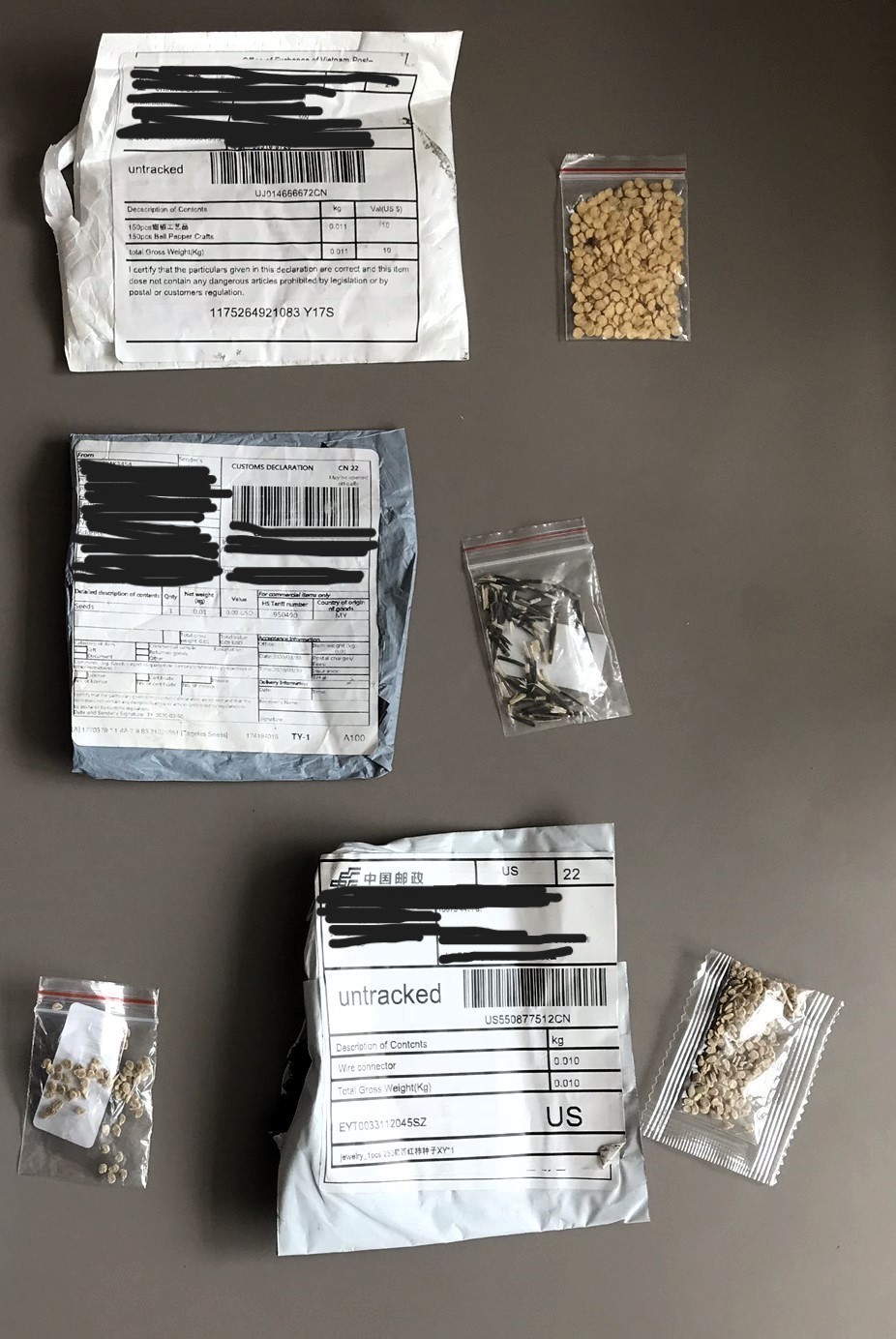return to Seed Program main page
Seed Complaints
The Minnesota Seed Law (Minnesota Statutes, Sections 21.80-21.92) exists to provide consumer protection through truthful labeling of seed in the state and fair marketplace competition by requiring all seed labelers to comply with the same requirements.
A complaint may be filed when there is reason to believe that a violation of the Minnesota Seed Law has occurred. Violations typically involve seed that is not of the kind, variety, purity or quality stated on the label, contains prohibited noxious weed seed, or contains excessive levels of inert matter or certain other weed seed. Violations may also occur when seed has been otherwise misrepresented by false or misleading advertising.
Seed law violations may be brought to the attention of the Minnesota Department of Agriculture (MDA) by: mail, e-mail, phone, or in-person with a MDA staff member, or County Agricultural Inspector (CAI). The individual making the complaint will be asked to fill out a Seed Inspection Request Form. This form is used to officially initiate a complaint-based investigation, and case file. This form is also available under the: Forms + Resources section, located on the right side of the web page.
The case is assigned to an MDA Seed Regulatory Unit field staff member based on the location and nature of the alleged violation. The MDA investigator will schedule an appointment with the complainant to begin the inspection and sampling (evidence gathering) phase of the investigation.
Inspections can be conducted at retail and wholesale facilities, conditioning plants, fields, gardens, and other locations as follow-up to a complaint. A violation could result from the testing and analysis of an official sample in which incomplete, false, or misleading labeling was discovered. It also could result from false or misleading labeling or advertising discovered during an investigation without a sample being drawn. In some cases, records are also reviewed as a part of the investigation. From the information required in these records, a seed lot could be traced to another site where another inspection can be conducted and an official sample obtained if it is necessary to document a violation.
Inspection reports and sample test results are added to the case file and reviewed by the MDA Seed Regulatory staff to determine the nature and extent of the violations.
If sufficient evidence of a violation does not exist or is no longer available, the investigation will be suspended. A letter notifying all involved that the case is being suspended is sent. If no new evidence or opportunities to obtain it are disclosed, the case file is suspended 30 days after the letter is sent. The case file will be closed one year after it is suspended if no new information is received that make re-starting it necessary and in the best interest of the consumer.
What if a violation is indicated by the evidence?
- A notice of violation along with a summary of the evidence documenting the violation(s) is issued to the seed labeler and a copy to the complainant. This notice also specifies required corrective action(s) such as re-labeling to accurately reflect the contents, obtaining a current germination or purity test report, correcting statements in sales literature, etc. It may also include a “Stop Sale Order” effective until violations are verified as having been corrected. The notice requests a response from the labeler within fifteen days indicating the corrective actions undertaken on the violations noted.
- If an adequate response to a correction order has been received, the investigation may be closed for low priority violations. For medium or high priority violations, a decision on whether to close the investigation or pursue additional penalties through civil proceedings may be based on the labeler’s history of other or similar violations in the previous three years.
- If no response is received within fifteen days, another notice is sent or a telephone call is placed to the firm to encourage a reply when a low priority violation is involved. For medium or high priority violations, a field staff member will conduct a follow-up inspection for firms located in the state. For persistent or recurring violations by the same labeler, the department may seek administrative penalties, civil action or criminal (misdemeanor) prosecution.
- If the violation is noted on a seed lot labeled by an out-of-state labeler, the case may be referred to USDA - SRTB (Federal Seed Regulatory & Testing Branch) for enforcement. They will issue a warning for most violations that are the first recorded for the labeler. For multiple violations or a very serious violation, an administrative fine may be assessed.
When all actions are completed, all involved parties are notified in writing.
The MDA does not have authority to award or seek compensatory damages on behalf of any party in the case.
The Minnesota Seed Law offers an arbitration process for disputes involving the sale of seed between two parties when they cannot reach a resolution on their own.
If you've received unsolicited mystery seeds from a foreign country, please contact the Minnesota Department of Agriculture Seed Regulatory program and include photos of the package. They will provide you with guidance on how to proceed.


